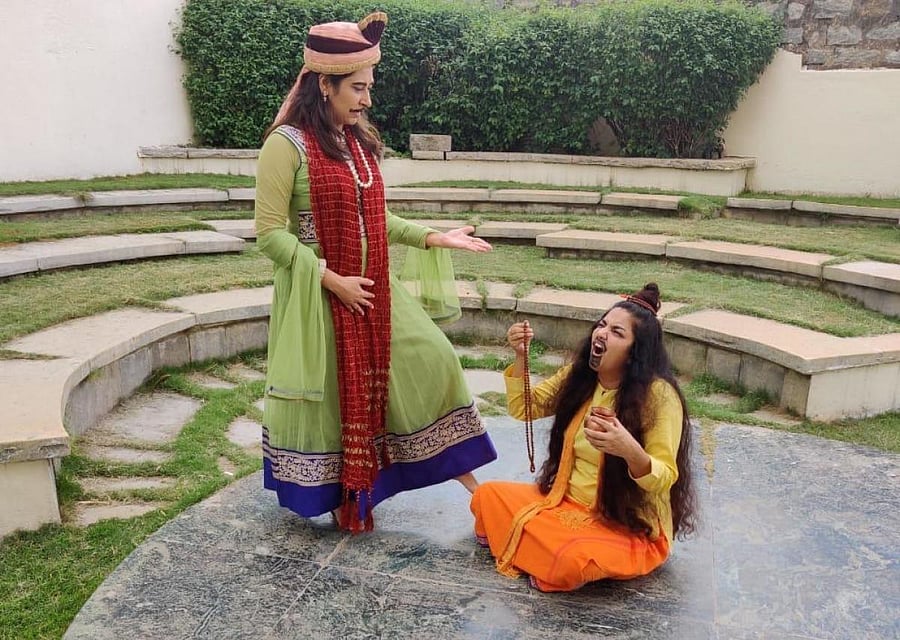
Theatre for Change has collaborated with theatre practitioners from the Bengaluru and the Hindi theatre fraternity to pay a tribute to playwright-director Safdar Hashmi with an online poetry series on June 12.
Zafer Mohiuddin from Kathputliyan will flag off the virtual poetry series with Bansuriwala, which looks at the common man and his importance in a democracy. ‘Duniya Sabki’, is an enactment of a lyrical dialogue between Akbar and Birbal on entitlement and ownership. Yet another segment will have children aged between 10 and 15 years reciting short poems of Hashmi. It is directed by theatre actor Shatarupa Bhattacharyya, the cast comprises Srinivas Beesetty, Ankita Jain, Avantika Gautam, Moulik Pandey and Neha Mohanty. Founder of Theatre for Change Sujatha Balakrishnan speaks to Metrolife about how this concept took shape and more.
What made you choose the theme that you did for children?
As a teacher and counsellor, I believe children need to be raised in an egalitarian environment.
Justice, equality and diversity are huge words that cannot be comprehended by little ones. But if the importance of these have to be instilled in children, we need to think of mediums that convey it in a relatable and intriguing manner. These concepts expose children to reality. Unfortunately, most of the children live in a bubble. As a society, it’s our duty to sow and nurture the seeds of egalitarianism in the young minds that will go a long way in grooming them into socially responsible citizens. And I thought introducing children to Hashmi’s poems would certainly provide them the needed food for thought.
How challenging has it been to adapt it for online?
I feel lockdown will not and should not result in a lockdown of any art form. This is justified by the number of online theatrical activities witnessed during this pandemic. Yes, it’s indeed a huge challenge as live stage performances add life to the script through stagecraft, props and movement while a virtual presentation has its own limitations. Today’s theatre performances are becoming participatory and immersive which again an online one cannot do complete justice. There is the technical challenge of differing internet speeds, repeated power cuts, and malfunctioning computers. The entire presentation remains simple and actors will be seen in same colours with an extra clothing element that signifies their character to ensure the potent political message is hammered home.
How do you plan to simplify Hashmi’s work for a younger crowd?
My emphasis in all our productions has been multilinguality. Language should not be a barrier for any art form. We have used illustrations by Bindia Thapar that are funny and witty and is a visual treat, The characters — a fat boy, a tomboyish girl, a Muslim, a South Indian — to name a few, reflect the importance of diversity. Hashmi has carefully and creatively included abundant aural components in his poems which are an aural delight with rhythm, wordplay and colours of the world around children. It’s about seasons, people and places. Although, woven with a strong message of equality and diversity, it’s not sermonising or doesn’t sound like a moral science class. Another piece, ‘Duniya Sabki’, is a lyrical conversation between Akbar and Birbal on the ownership of nature, Bansuriwala, which emphasizes that democracy is for the people, by the people and of the people. It drives home the message that children are the country’s wealth and in Samar Singh ki Saalgirah, where everyone looks extremely different in a little boy’s family — fat, thin, dark and fair — reiterates that differences are what makes one different.
How has the work been made visually interesting?
For visuals, children will be seen wearing costumes closely related to their poetry. For instance, the child reciting ‘Sardi’ will wear a woollen cap and a muffler around his neck. For Azadi, the child wears a tricolour costume and so on. And of course, Akbar and Birbal will be dressed in their respective king and sadhu costumes.
(The events can be watched on Theatre for Change FB page and TfC YouTube channel on from June 12 at 7 pm)
